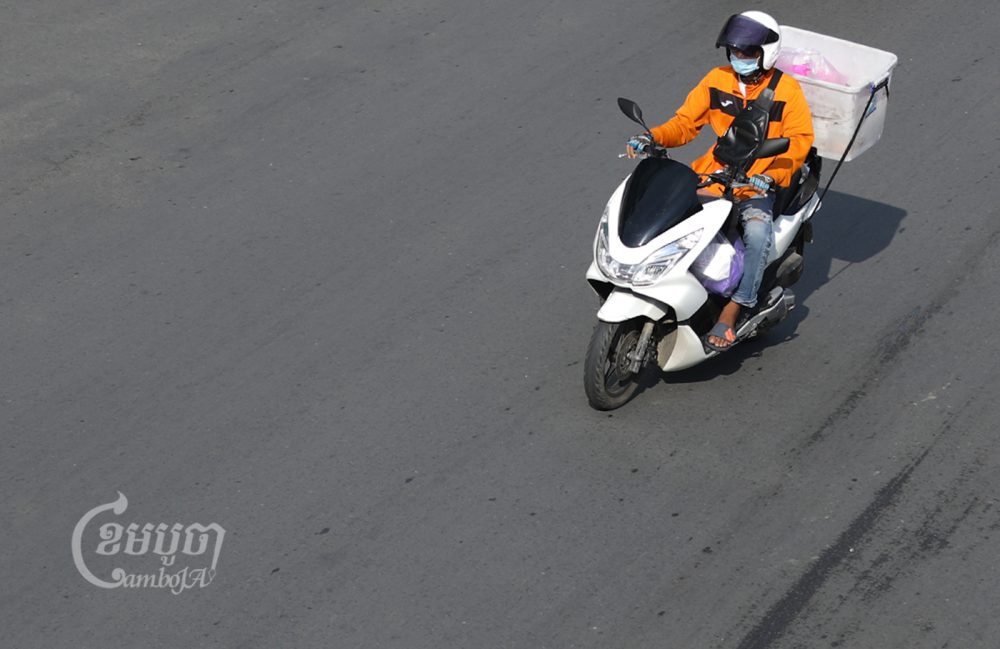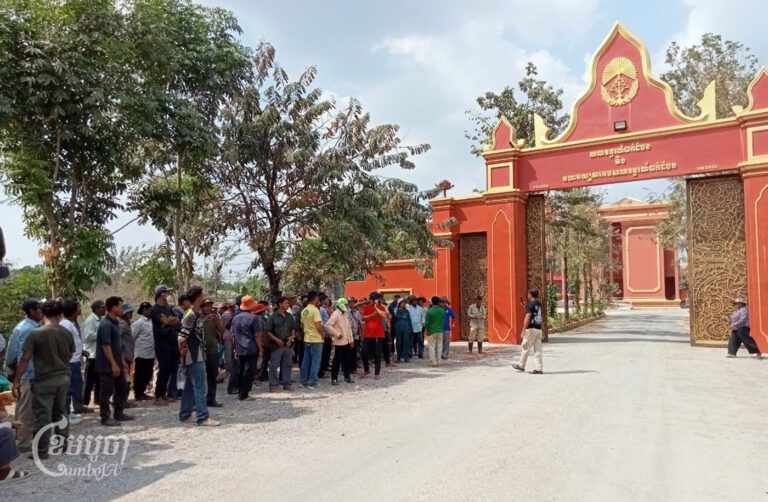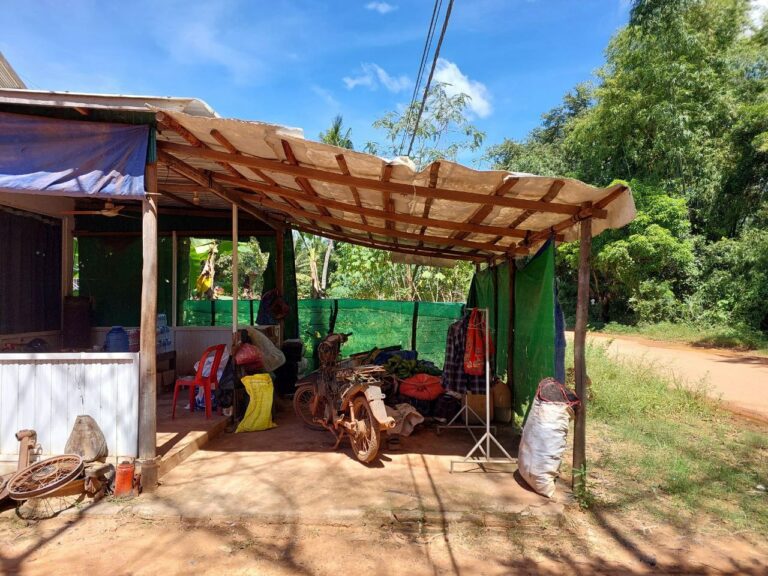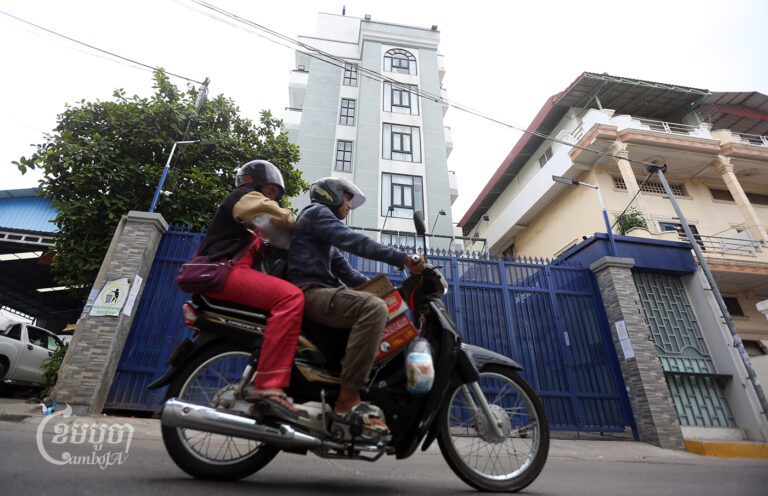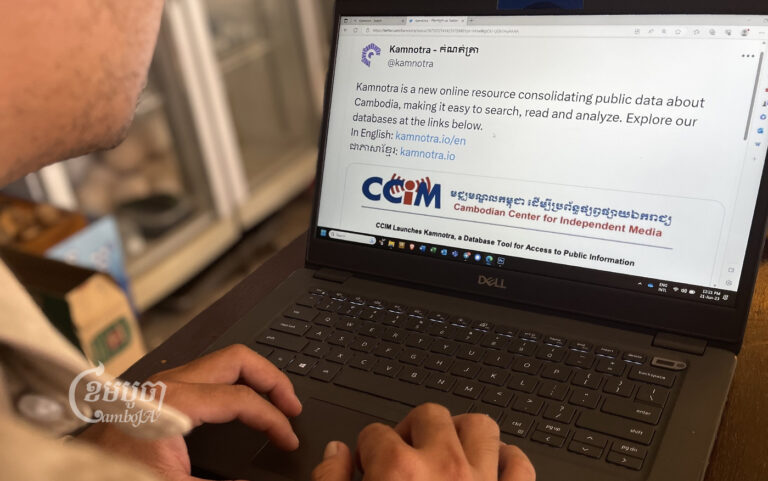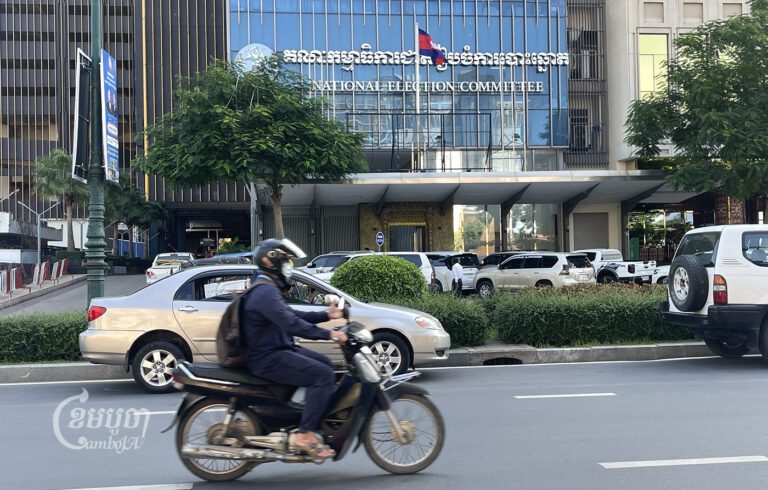In Cambodia, online shopping – typically on smartphones and tablets – is becoming increasingly popular due to its convenience. However, this presents significant issues for less technologically savvy buyers, who may be more vulnerable to scams, especially when shopping on social media.
On April 27, Ouk Chhaivan, a citizen in Chi Kreng District of Siem Reap province, was asked to transfer payment for the purchase of two battery-powered bicycles via the Wing Transfer Money agency.
The sellers told her that they had only 10 bicycles left, and that she would have to make payment by 3:30 p.m. the same day or she could not have the bicycles. She paid them accordingly.
“They said they will send me the bicycles after the transfer. From that day until now, I have not received the two bicycles. They have even blocked my Facebook account and I can no longer contact them by phone,” Chhaivan said.
She shared on her Facebook profile that she had been scammed, identifying the Facebook business page. She said that many people commented and criticized her, while some encouraged her to file the complaint to the relevant authorities.
Yuth Somaly, a citizen of Kampong Thom province, told CamboJA that she also likes to shop online because it helps her save time. She shops online at least monthly, and mostly buys items like books, clothes, bags, creams, and lotions.
However, she said she has been cheated of her money three times. She explained that sometimes, what she received did not match what she ordered or expected.
Sometimes the product was in the wrong size, for instance, and when she contacted the online sellers, they didn’t respond and she never heard back from them. Another time, after she had transferred money to the sellers for a purchase made via Facebook, the sellers blocked her on Facebook.
“As I have observed, the type of person who cheats is trying to get us to turn the money around quickly so that the goods will be delivered immediately,” Somaly said. “But finally the package does not arrive.”
When asked what recourse she has to her predicament, she said she could only rely on a relevant ministry or the Department of Crime to look into the matter. She had wanted to sue the seller, but she was unable to find out who to sue as she was blocked by the seller’s Facebook business page.
CamboJA contacted Chea Pov, director of the Anti Cyber Crime Department under the Ministry of Interior, but he declined to provide any information about cyber crimes in Cambodia.
CamboJA also contacted Chhay Kim Khoeun, the spokesperson of National Police, but he said such matters fall under the responsibility of the Anti Cyber Crime Department.
CamboJA was also unable to reach the spokesperson of the Interior Ministry, Khieu Sopheak.

Nget Moses, a digital security consultant, told CamboJA that the increasing number of people purchasing goods and services online are also beginning to sign on to online subscriptions – such as purchasing travel services and ordering goods from abroad to sell in Cambodia.
He said that this grew significantly during the pandemic, since people were unable to meet or go out to buy food, clothes, and other supplies. Instead, they purchased them to be delivered.
However, he observed that despite the increase in online shopping, Cambodians were not yet familiar enough with the technologies of digital marketing, which may cause problems for both sellers and buyers.
“New technologies and e-commerce arrive faster than sellers’ and buyers’ understanding, causing online buyers and merchants in our country to be unprepared,” he said. “They have to sell, buy, and learn how to use the digital platform at the same time.”
According to Statcounter Global Stats, of all Cambodian social media users from April 2021 to April 2022: 47.56% were Facebook users, 27.28% YouTube users, 8.59% Pinterest users, 3.94% Instagram users, and 2.64% of Reddit users.
Soeurng Leakhena, an online seller in Phnom Penh, likes to shop online for items such as clothing, cosmetic products, and food. She was also scammed into transferring money via the Wing Transfer Money agency, and lost $50.
The sellers first asked her where she was located. If she was in the provinces, they said they were in Phnom Penh. If she was in Phnom Penh, they said they were in the provinces. They always said they were in a different location and asked her to transfer the payment first. After she transferred the money, they blocked her or stopped responding in their chat.
Leakhena has some advice for those who shop online: “Please check thoroughly before they decide to transfer money to the online sellers, and relevant authorities should check the online scams and frauds.” She added that social media users should comment, share, and disseminate such scams widely because many Facebook pages and profiles use the platform to cheat others.
According to the Telecommunication Regulator of Cambodia, the number of mobile phone subscribers in Cambodia reached 19,458,849 in January 2022, while the number of Internet subscribers reached 1,7591,396.
Moses, the digital security consultant, said online purchasing should necessitate at least a brief training course in account security, payment security, and safe receipt of goods.
“If we look at the way to shop in a physical store, we arrive at the market and we buy clothes from the vendor and inspect them to see whether they are clean, fit, or damaged. Then, we give the sellers money. But it’s not like that online; we only see the photographs they upload, and we have no idea how the product appears or how safe it is,” he added.
He said that online purchases from e-commerce stores can be safer. When a buyer makes a purchase and makes the payment, often the seller cannot withdraw the money – the money is held by the site – until the buyer receives the goods and informs the seller that they have been received.
He also recommended that relevant ministries could require sellers to register a Seller Account formally with banks, which the state can also levy on.
Pen Sovicheat, the spokesperson for the Ministry of Commerce, told CamboJA that the ministry does not possess complete statistics to estimate the actual rise of online scams, because the ministry has yet to receive sufficient registrations of e-commerce businesses.
“The ministry has urged people to apply for business licenses and to register firms that conduct business electronically, but few companies have done so,” he said. “All businesses are required to register or apply for a permit.”
Echoing Leakhena, Moses also said that before consumers make purchases on social media, they should check other users’ comments on the business’ Facebook page and the page’s reviews. Buyers need to examine whether the items, the store’s location, and its phone number are real.
Related to online fraud prevention, Sovicheat also said the Ministry of Commerce is preparing another sub-decree related to dishonorable advertising with other ministries. It involves issues related to the misrepresentation of quality, the exaggeration of product quality or effectiveness, and so on.
“We [MOC] hope that this sub-decree will be issued soon, to provide a legal document for the implementation of work related to the prevention and precaution of online fraud,” Sovicheat said.
Chhoun Chandararoth, the deputy head of the Office for Consumer Complaint Handling under the Consumer Protection, Competition and Fraud Repression Directorate-General (CCF), told CamboJA that, since 2019, the department has received 28 complaints – including cases of both online and offline shopping, as well as cases that are resolved and unresolved.
Sovicheat, the spokesperson for the Ministry of Commerce, said that if any users are victims of online sales fraud, including the use of fake names or phony brands, they can make a complaint with the General Department of CCF, which comes under the Ministry of Commerce. He said the ministry has dealt with numerous such cases.
Chandararoth added that consumers can download the template for filing complaints on CCF’s website or go directly to each branch of CCF, and they can submit their complaints online or at the Ministry of Commerce and branches of the General Department in 25 provinces.


